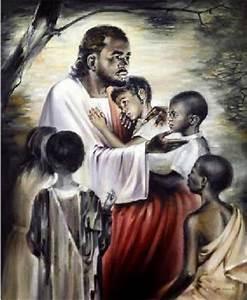 For those of you of a certain age, the conclusion of my title is “my two front teeth,” a very cheesy and very popular song back in the day, sung by an adorable little boy who has lost, as kids do, his front teeth, thereby making it impossible for him to say clearly “Merry Christmas.” That song is very problematic in our time, a time when we all should be very careful not to mock anyone with any kind of speech impediment, such as the lisp that the song makes continual fun of. Granted, the boy will almost certainly grow his front teeth back, but for those who do still lisp, even as adults, the song can be very painful to hear. Hence, the conclusion to my truncated title today will not be “my two front teeth.” Having myself had three dental procedures quite recently to replace lost or broken teeth, that song gives me, now in my older age, the creeps!
For those of you of a certain age, the conclusion of my title is “my two front teeth,” a very cheesy and very popular song back in the day, sung by an adorable little boy who has lost, as kids do, his front teeth, thereby making it impossible for him to say clearly “Merry Christmas.” That song is very problematic in our time, a time when we all should be very careful not to mock anyone with any kind of speech impediment, such as the lisp that the song makes continual fun of. Granted, the boy will almost certainly grow his front teeth back, but for those who do still lisp, even as adults, the song can be very painful to hear. Hence, the conclusion to my truncated title today will not be “my two front teeth.” Having myself had three dental procedures quite recently to replace lost or broken teeth, that song gives me, now in my older age, the creeps!
Yet, it remains important in 2020 to conclude the fragment of my title with something, is it not? I have finally arrived at age 74 to the time of life when I can hardly imagine what I want for Christmas in the way of gifts. I find it far more fun to give gifts to others, and with two young grandchildren, ages 8 and 5, it gives me vast joy to watch their eyes light up as they tear into packages I have provided for them. Of course, I am supremely fortunate in this troubling year when so many of my fellow US Americans have scant opportunities to offer gifts to their loved ones, since they have either lost their jobs, or even more horribly, have watched from a distance as some die from the monstrous pandemic. My family, my wife, and our two children, plus those lovely grandchildren remain safe and healthy. I can well imagine how many of them would end my title, either with “an end to the pandemic” or “a return to health” or “a return to something like normalcy.”
As I reflect on what I want this Christmas, I am reminded of another long past tradition that my family used to watch on television each year; the Miss America pageant. Yes, I watched each year, as a pre-pubescent boy ogling at the “swim suit competition,” while my mother gaped at the ball gowns and the superlative and diverse talents displayed by these stunningly beautiful young women. Of course, when I watched, they all were beautiful white women; only later were women of color allowed to enter, and only much later did such a woman actually win. The subsequent years have not been kind to this pageant, as it became increasingly clear that these women were being sexualized for the “entertainment” of it all, forced to look a certain way, act a certain way, be someone’s personification of the “all-American girl.” When Bert Parks sang that song at the end of the contest each year—“There she is, Miss America”—many imagined that woman who won represented all that was best about “womanhood” in the USA. My older brother actually had a date with a future winner of this contest, an experience that he has treasured, and one I have envied, all the 50+ years ago when it happened.
But the most cringe-worthy part of the Miss America show was that time when Mr. Parks asked the finalists a question, one they had not received beforehand. The question, as I remember, was some variation on “what would you do if you were president?”—a quite absurd idea in those terribly misogynistic days—or “ if you had all the power in the world, what would you do?” The answers were invariably something like, “I would create world peace,” or “I would feed all the world’s hungry children,” or some other reply that was well-meant, but had a kind of sappy pie-in-the-sky emptiness to it. But, as I continue to reflect on my title, I admit that something like feeding the hungry and creating the means for world peace do surge into my consciousness. Would that not be grand? No hungry people! Swords into plowshares! Magnificent, however unlikely given that we still are all too human with our greed and lust for power and our self-serving wants. I should not be so hard on those trembling women of the Miss America pageant, because their answers to those sweeping questions were heart-felt, if completely unlikely.
Well, I am still dodging the issue, am I not? How do I want to conclude my phrase? What do I want for Christmas? In the end, what does the Bible say about this Christmas thing anyway? What is the point of the shepherds and their angelic chorus, the magi from the East and their peculiar star, the unwed mother and her reluctant, but finally acquiescent, companion, the cruel Herod and his equally cruel son, the flight to Egypt, the journey to Nazareth, either peacefully (see Luke) or forced (see Matthew)? Why have we celebrated the baby’s birth with song and pageant and lights and folderol and brou-ha- ha for all these centuries?
The answer in the Bible appears to be simple, if extremely contested by Christians through the centuries. The angel tells Joseph in Matthew and Mary in Luke to name the boy Jesus. This is a good Hebrew name, built on the verb that means “deliver” or “rescue.” This baby is sent by the creator God in order to serve God’s creation as rescuer. Of course, that implies quite directly that we are in need of rescue. From what? Some through the years have claimed that we need rescue from our sin, a sin inherited from our biblical forebear, Adam, that dunderhead in the garden, who would rather eat than pay attention to God. I find that view of the matter unsatisfactory in more ways than I can count.
I think what God has in mind with the birth of Jesus is for Christians to be rescued from ourselves. Rescued from our overwhelming belief that we are self-sufficient, that we do not need anyone else to make us who God wants us to be. The very fact that we Christians have long imagined that Jesus has come for everyone is itself a supremely arrogant thing to imagine. After all, Christians, while numerous in the world, some 2 billion of us, give or take, represent only 2/7 of the world’s total population. Hence, while we Christians go on about our Jesus, 5 billion of the world’s folk could care less. We may believe that Jesus has come to rescue the cosmos, as the author of the letter to the Colossians makes poetically clear, but only Christians affirm that. What about the Jains and the Sikhs and the Jews and the Muslims and the nones? Could it be that Jesus is for those who have heard of him, while others need to discover their rescue in their own special way? My view is that Jesus is avatar of the rescuer we all need, but that rescuer from God has come and will come in other ways quite distinct from a baby in a manger.
Thus, I would conclude my title phrase with “Jesus, the rescuer,”the one who can save me from myself, from my arrogant certainties, from my all-fired convictions that I know what is right for the world. All I want for Christmas is Jesus, but Jesus the deliverer, the challenger, the baby from God who reminds me that I need more than myself to become what my God wants me to be. I need Jesus to call me out of my individualistic comfort zone to address the world in its wonderful and vast diversity. That is what I want this year at Christmas. How about you?
(Images from Wikimedia Commons)











